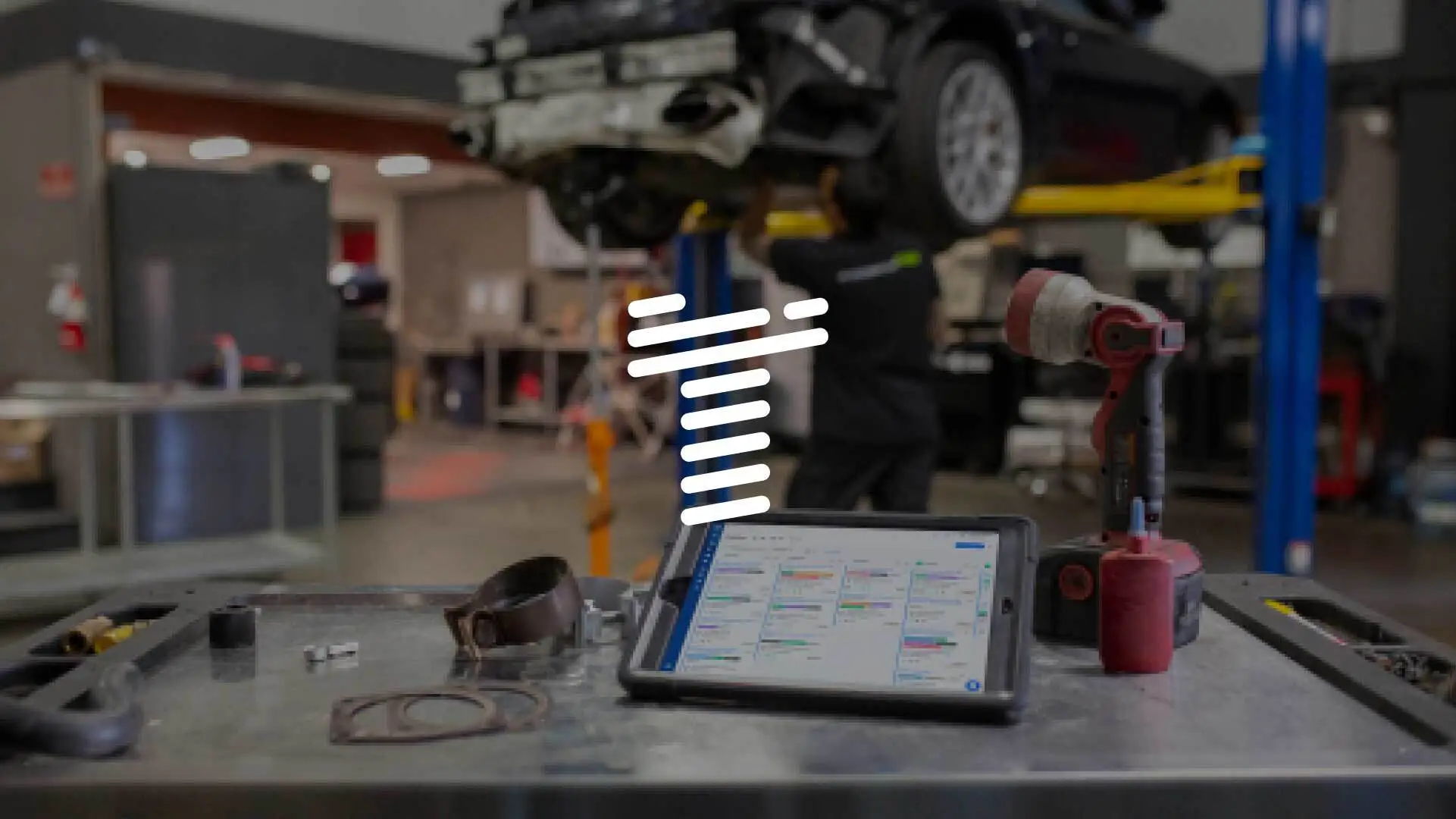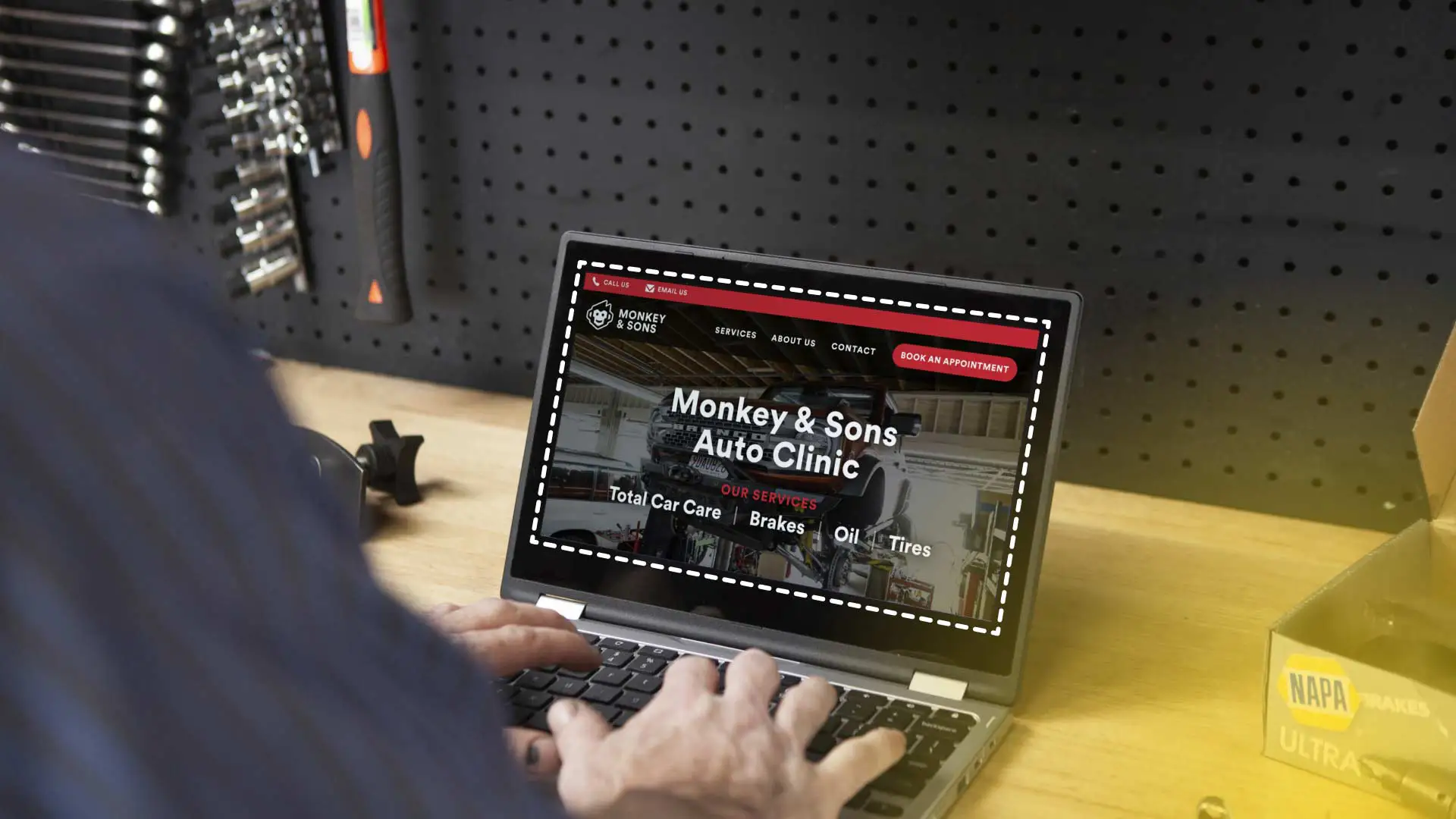Shopmonkey’s The Tune Up Podcast recently released its fourth episode, “Is Your Shop Automated?” The video features a spontaneous and insightful conversation of Shopmonkey employees chatting about the gains of reusable canned services for boosting auto shop efficiency.
Other than loosening the dress code (which traditionally involves each podcaster wearing an all-black Shopmonkey shirt), the 40-minute broadcast didn’t stray too far from the winning formula of other episodes. Justin Simpson, Director of Experience Marketing, and Zack Buffum, Director of Training and Enablement, co-chaired the discussion alongside Enablement Specialist Lukasz Konior, Solutions Engineers Jonathan Moretti and Michael Bordeaux, and Account Executive Gallagher Wilson.
The group touched on everything from the advantages of canned services to the effects it has on the daily activities of shop owners and service writers—and how these efficiency benefits positively affect the customer experience.
Digital Efficiency
Moretti set the tone for the conversation by noting that canned services were part of a bigger play to achieve digital efficiency, in which auto shops transition from “a tactile business to a data infrastructure business.” The importance of this was framed well by Wilson, who observed the fact that without canned services, shop management software, and other digital tools, shop owners and service writers are easily “stuck on paperwork and calling customers all day, and don’t have time to take a step back and focus on the bigger picture — “How do I get more cars in here?”
Instead of spending all their time calling for parts or writing estimates with tiresome, manual processes, shop owners and service writers can spend more time evaluating and improving their businesses. “With a good shop management system, most of this can be automated, simplified, and sped up so you spend the minority, not the majority, of your day on it,” Wilson pointed out.
The Need for Automated Processes
The podcast takes a compelling turn when the panel addresses the pressing need for shops to transition to canned services. Automated processes that are well-documented are essential for shop owners because, as Moretti mentioned, “The day you or someone else is out sick…there’s a whole trail there. If a customer comes back and says, ‘You broke my vehicle, you have an end-to-end conversation record with that customer, complete with photos and videos of your vehicle inspections, it will help.”
On the other hand, having a system that documents and provides access to processes for specific jobs is necessary for shop owners and service writers to expand their businesses to other locations, retire while the shop continues to operate, or make their employees more capable when they’re not around.
Understanding Canned Auto Shop Services
At one point, Moretti specified that canned services don’t necessarily have to be systemic overhauls but something as simple as an outline or a “skeleton of what you do when you do a certain type of job.” Having that information as documented notes or procedures makes it repeatable, makes shops more consistent, and drives customer trust.
Konior commented on a recent experience in which he called several shops for cost and time estimates for routine vehicle maintenance. Some gave him the information immediately, while others took much longer. “If you just have the basics of a tire rotation and alignment and have it built out so that people just out of high school can look at it, you can quickly pull that up on the phone, and that goes so far with a customer saying this shop is knowledgeable, I’ll keep going back to them,” Konior remarked. According to Simpson, shops are “setting themselves up for failure if they’re not building out these processes.”
Long Term Advantages
The long-term advantage of creating shop efficiency with canned services is that it helps satisfy customers. Not only does having this ‘tribal information’ available to techs and service writers through an automated system help them serve customers faster, but it helps them serve them better as well. “By automating some of these things, you give the service writer time to do what he/she does best, which is understanding what the customer wants,” Bordeaux reflected.
In that respect, canned services free up service writers’ time to foster relationships with customers, inquire about their lives and families, and eventually position service opportunities around that information—instead of constantly scrambling to determine the specific procedures for a job or how much it costs. It also drives technician efficiency, who become faster at performing a consistent set of services over time.
Interested in digging in more? Watch the full podcast in the video below:
Get under the hood and see it for yourself. Request a demo and discover how canned services can work for your shop.




